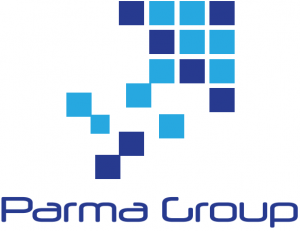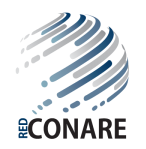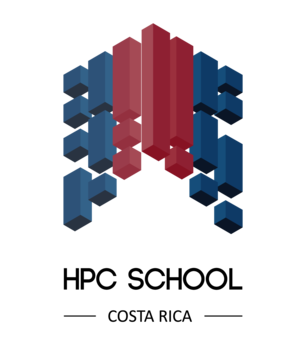
January 29th to February 2nd, 2018
Costa Rica National High Technology Center
Dr. Frankiln Chang Díaz building
1.3 km North of the US Embassy
Pavas, San José, Costa Rica
Topics:
- Shared-memory Programming
- Accelerator Programming
- Distributed-memory Programming
- Performance Analysis
Instructors
MSc. Jorge Castro

Biography: Jorge Castro has a bachelor’s degree in Computer Science from the University of Costa Rica and an Academic Master’s Degree in Electrical Engineering with emphasis in Digital Systems from the University of Costa Rica. His interests include digital signal processing, bioacoustics, machine learning and high performance computing with OpenACC. He is currently working on accelerating the method of noise cancellation of the environment in recordings of vocalizations of West Indian manatees, developed in his master’s thesis. Jorge will teach the accelerator programming track in the school.
Lic. Diego Jiménez
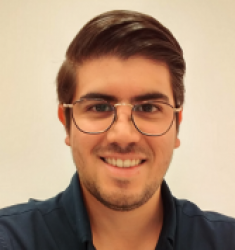
Biography: Diego Jiménez Vargas, computer engineer graduated from the Technological Institute of Costa Rica with a bachelor’s degree, is part of the work team of the Advanced Computing Laboratory at CeNAT, where he conducts research in scientific computing and high performance computing. Currently, he is involved in a project in the area of computational neuroscience where he contributes his knowledge in parallel programming for the construction of a computational cluster, based on reconfigurable hardware platforms, for the simulation of biologically significant neural networks. On the other hand, he carries out studies on the communication patterns present in large-scale MPI applications and its mapping to common interconnection topologies in high-performance computing. His research interests are focused on parallel programming and high performance computing, as well as applied scientific computing in the area of neuroscience. Diego will be in charge of teaching the shared-memory programming sessions in the school.
Bach. Daniel Alvarado
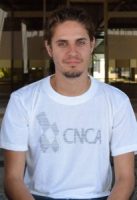
Biography: BS in Computer Science from University of Costa Rica. He is a research assistant in the Advanced Computing Laboratory at CeNAT. He has a partial appointment at the Computer Science School at University of Costa Rica. His research interests are computational physics and HPC. Daniel will teach the distributed-memory programming sessions in the school.
MSc. Saúl Calderón

Biography: Magister Scientae in Electrical Engineering with emphasis in digital systems, University of Costa Rica (UCR). Bachelor in Computing and Informatics, University of Costa Rica. He teaches machine learning, electronics and software engineering courses at the Costa Rica Institute of Technology (TEC). His research interests are: digital signal processing (sound, images, video), pattern recognition, automatic learning and parallel computing. He currently coordinates the PAttern Recognition and Machine Learning Group (PARMA-Group), TEC. He has published more than 10 articles in international conferences, in the area of digital signal processing and pattern recognition. Saúl has worked as a researcher and or consultant at the Image Processing and Computer vision group (UBA, Argentina), Intel Research, Development and Innovation team, Pattern Recognition and Intelligent Systems Laboratory (PRIS-Lab, UCR), Search Technologies, and Datalynx.
Lc. Marco Villalta
Biography: Marco obtained a degree in Electrical Engineering with emphasis on digital electronic control at the University of Costa Rica (UCR). He currently teaches and manages the network at the School of Electrical Engineering at UCR. He is pursuing a Masters degree at PRIS-Lab. He has participated in HPC courses at the International Center for Theoretical Physics (ICTP). His research interests include embedded systems, automatic learning and high performance computing.
Bach. Constantino Bolaños
Biography: A graduate from the Computer Science and Informatics School at the University of Costa Rica (UCR). He is currently pursuing a Masters degree in Cognitive Sciences at UCR. He has worked as research assistant in various centers and institutes at UCR, among those the Research Center of Information and Communication Technologies, the Institute for Psychology Research, and PRIS-Lab. He is currently working at PRIS-Lab on brain-computer interfaces.
Agenda
| DAY & TIME | Monday 28th | Tuesday 29th | Wednesday 30th | Thursday 31st | Friday 1st |
| 8:00am – 8:30am | Registry | ||||
| 8:30am – 10:00am | Inauguration | Shared-memory Programming | Distributed-memory Programming | Accelerator Programming | Application Presentations |
| Organizer Presentations | |||||
| 10:00am – 10:30am | Morning Break | ||||
| 10:30am – 12:00pm | Kabré Supercomputer Tutorial & Group Photo | Shared-memory Programming | Distributed-memory Programming | Accelerator Programming | Application Presentations |
| 12:00pm – 1:00pm | Lunch | ||||
| 1:00pm – 3:00pm | Code Profiling | Shared-memory Programming | Distributed-memory Programming | Machine Learning | Hierarchical Data Format |
| 3:00pm – 3:30pm | Afternoon Break | ||||
| 3:30pm – 5:00pm | HPC 101 | Shared-memory Programming | Distributed-memory Programming | Machine Learning | Hierarchical Data Format |
Presentations
| TIME | TITLE | PRESENTER |
| 8:30am – 9:00am | Some Experiences in Quantum Chemistry Developed on Kabré Supercomputer | Eric Romero, Costa Rica Institute of Technology |
| 9:00am – 9:30am | Using Supercomputers to Model the State of the Sea | Rodney Mora, University of Costa Rica |
| 9:30am – 10:00am | Machine Learning Algorithms Applied to the Generation of Predictive Models | José Navas, Costa Rica Institute of Technology |
| 10:00am – 10:30am | Morning Break | |
| 10:30am – 11:00am | InfOli: A Parallel Neuron Simulator on Xeon Phi Architectures | Diego Jiménez, Costa Rica National High Technology Center |
| 11:00am – 11:30am | Parallelizing the Denoising Stage of an Acoustic Manatee Count Algorithm Using OpenACC Directives | Jorge Castro, Costa Rica National High Technology Center |
| 11:30am – 12:00pm | Debunking Myths and Rumors of High Performance Python | Guillermo Cornejo, Costa Rica National High Technology Center |
Pre-School
We will offer onboarding sessions for those who would like to sharpen their Linux and C skills. Attendance to the pre-school is optional. The onboarding sessions will take place the following days:
Introduction to Linux tools: Thursday January 25, 8:30am-5:00pm, Lab 2, CeNAT
Introduction to C Programming Language: Friday January 26, 8:30am-5:00pm, Lab 2, CeNAT
Material
Presentations
HPC 101 (Dr. Álvaro de la Ossa)
Machine Learning (MSc. Saúl Calderón)
Repositories
Costa Rica HPC School Git Repository
Registry
Tuition fee
Participation is free. There are no tuition costs associated with participating in this school for those affiliated to CONARE institutions.
Maximum quota
The maximum quota is 40 participants.
Inscription
The following form has to be fully filled before Thursday January 11, 2018. Accepted participants will be notified via email on Friday January 12, 2018
Important dates
Start of the application process to the School: December 12, 2017.
The closing of the application process to the School: January 11, 2018.
Notification of acceptance/rejection to the School: January 12, 2018.
Requirements
To be a student, professor, or researcher at any public university (UCR, TEC, UNA, UNED, UTN), from CONARE or any of its ascribed programs: CeNAT, PEN and SINAES.

Have an intermediate English level (reading and listening). Some presentations and exercises may be in English.

Have intermediate programming skills (C/C++ desired, Python acceptable) and intermediate Linux handling.
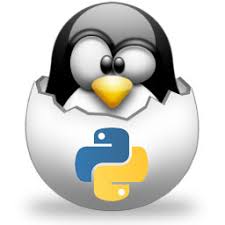
Evaluation
Costa Rica HPC School evaluation: click here.
Sponsor
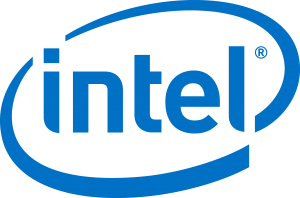
Organizers
The Advanced Computing Laboratory (CNCA) at Costa Rica High Technology Center (CeNAT) is a multidisciplinary space where scientific discovery is accelerated through an advanced computing infrastructure. This infrastructure includes not only specialized and updated hardware, but also a set of efficient applications and well-trained staff in order to take advantage of all the technology. This allows CNCA to work in the main dimensions of research, project development, training, and services provision.
The Laboratory of Pattern Recognition and Intelligent Systems (PRIS-Lab) is part of the School of Electrical Engineering of the University of Costa Rica. It was founded in 2012 by Dr. rer. nat. Francisco Siles Canales as a mean for transdisciplinary formation. This laboratory looks for the generation of scientific research and technological innovation to integrate the academic community, government, industry, civil society, and the environment, in order to improve people’s quality of life.
The goal of the Pattern Recognition and Automated Learning Group (PARMA Group) is to research and develop solutions based on automated learning, in collaboration with other institutions. PARMA group organizes training activities for students, teachers, and professionals in the area (signal processing, automated learning, data mining). Some of the current projects of the group include cellular segmentation and tracking in biomedicine, automated analysis of prostate histologies, and automated analysis of blood flow.
RedCONARE is the National Network of Education and Research of Costa Rica, which provides public universities in the country with a telecommunication infrastructure and communication services: eduroam, Mconf, LA Referencia, El Colaboratorio. Advanced networks provide a space to propel knowledge in the community of higher education and research. In Costa Rica, RedCONARE has positioned itself as a space for joint research and collaboration among the forming institutions.
Aknowledgements
The logo of Costa Rica HPC School was designed by Ing. D.I. María Cristina Vargas Del Valle.
Location



